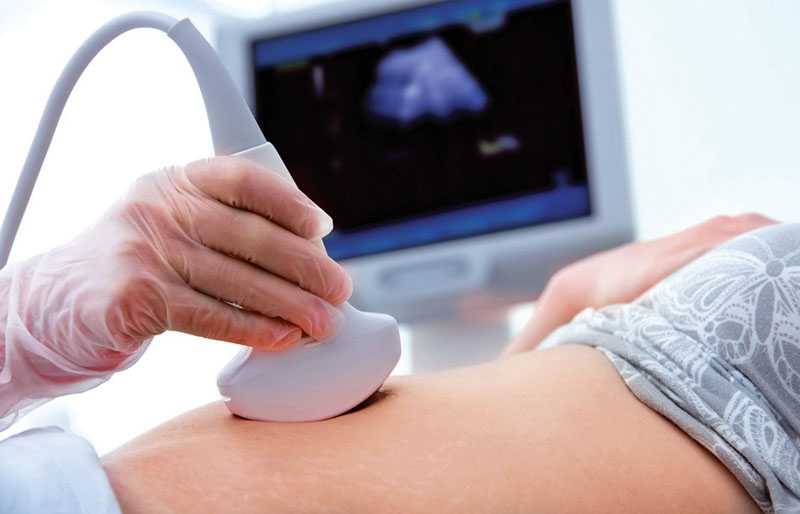Pregnancy outside uterus
Kathmandu
An incredible journey of life begins with pregnancy — when a woman conceives and the fertilised egg grows inside the uterus. However, there are chances for the fertilised egg to be attached to a place other than the inside of the uterus.
“When the fertilised egg is grown/attached to other places than the normal place — uterus — it is termed as ectopic pregnancy,” Dr Manor Din Shaiyed, MD, MBBS Consultant Gynaecologist at Manmohan Memorial Teaching Hospital, Swoyambhu and Green City Hospital, Basundhara says about this rare kind of pregnancy.
Dr Samir Lama, MD, General Practice, Pyuthan District Hospital, Bijuwar Pyuthan adds, that ectopic pregnancy can occur anywhere — abdomen, cervical area or the ovaries. But most ectopic pregnancies “occur in the fallopian tube. This is why they are called tubal pregnancies”.
Ovum is released from the ovary and passes through fallopian tube, comes to the uterus and is fertilised — this is the normal physiology of pregnancy. “When there are problems in the mechanism, fertilisation takes place in the tube or other areas of the uterus. The ovum might not come out from the fallopian tube which results in an ectopic pregnancy,” explains Dr Lama. Ectopic pregnancy can occur in women of all reproductive ages.
As per Dr Shaiyed, “Women suffering from pelvic inflammatory disease, or who have suffered from tuberculosis in the fallopian tube or women who are using intrauterine contraceptive device (IUCD) are likely to have an ectopic pregnancy. Women with infertility, history of tubal surgery, habit of smoking, earlier ectopic pregnancy and women who are taking repeated emergency contraceptive pills are under the risk of ectopic pregnancy.”
Ruptured and unruptured
Ectopic pregnancy can be both ruptured and unruptured. “A ruptured ectopic pregnancy occurs when ovum in one of the fallopian tubes grows and causes the tube, the embryo and the blood vessels to tear or to burst. Until then it is unruptured pregnancy,” Dr Lama informs. When ectopic pregnancy ruptures, immediate operation is necessary to save the patients’ life.
Dr Lama explains, “The bursting of blood vessels will lead to internal bleeding in the abdomen. It also will lead to decrease in blood pressure and shock. If immediate surgery is not carried out, there are high chances for mortality because of
internal bleeding.”
In the process of surgery, the fallopian tube is removed. He adds, “The removal of organs depends on the cases. Sometimes we need to remove the affected fallopian tube, while at times we need to remove the uterus to save the patient’s life.”
As per him, cases of ectopic pregnancy go unnoticed in remote areas as people do not know about the condition. However, “a woman’s life can be saved if she is taken to the hospital as early as possible”.
In the unruptured ectopic pregnancy, timely care should be taken before it ruptures.
Dr Lama elaborates, “Termination of pregnancy is necessary in ectopic pregnancy. When the embryo isn’t ruptured (not burst), a medication can be used for the termination of the pregnancy. But if the embryo is grown and is bigger in size (more than four cm), then it is difficult to terminate the pregnancy. In this case, immediate surgery is necessary to take the embryo out.”
On a brighter note, women can conceive again and get pregnant. Dr Shaiyed says, the subsequent delivery rate after the first ectopic pregnancy is about 55 per cent, but it decreases to about 25 per cent after two or more ectopic pregnancies.
Know the pain
One of the common symptoms for ectopic pregnancy is severe lower abdominal pain — a woman does not feel pain when the fertilisation takes place.
“Till the fallopian tubes can hold the growing embryo, a woman is unlikely to feel the pain. It’s only when the fallopian tubes cannot expand further to give space to the growing embryo, is the pain felt. It usually happens when the pregnancy is of four, six to eight weeks,” elaborates Dr Lama.
An ultrasound is the best way to detect ectopic pregnancy. Dr Lama points out that a woman should do an ultrasound if she comes to the health centres complaining of her missed periods with sudden severe lower abdominal pain.
This is why women during their pregnancy must not ignore pain. “Severe pain in the abdomen with and without bleeding within the first trimester of pregnancy must not be ignored,” adds Dr Shaiyed.






